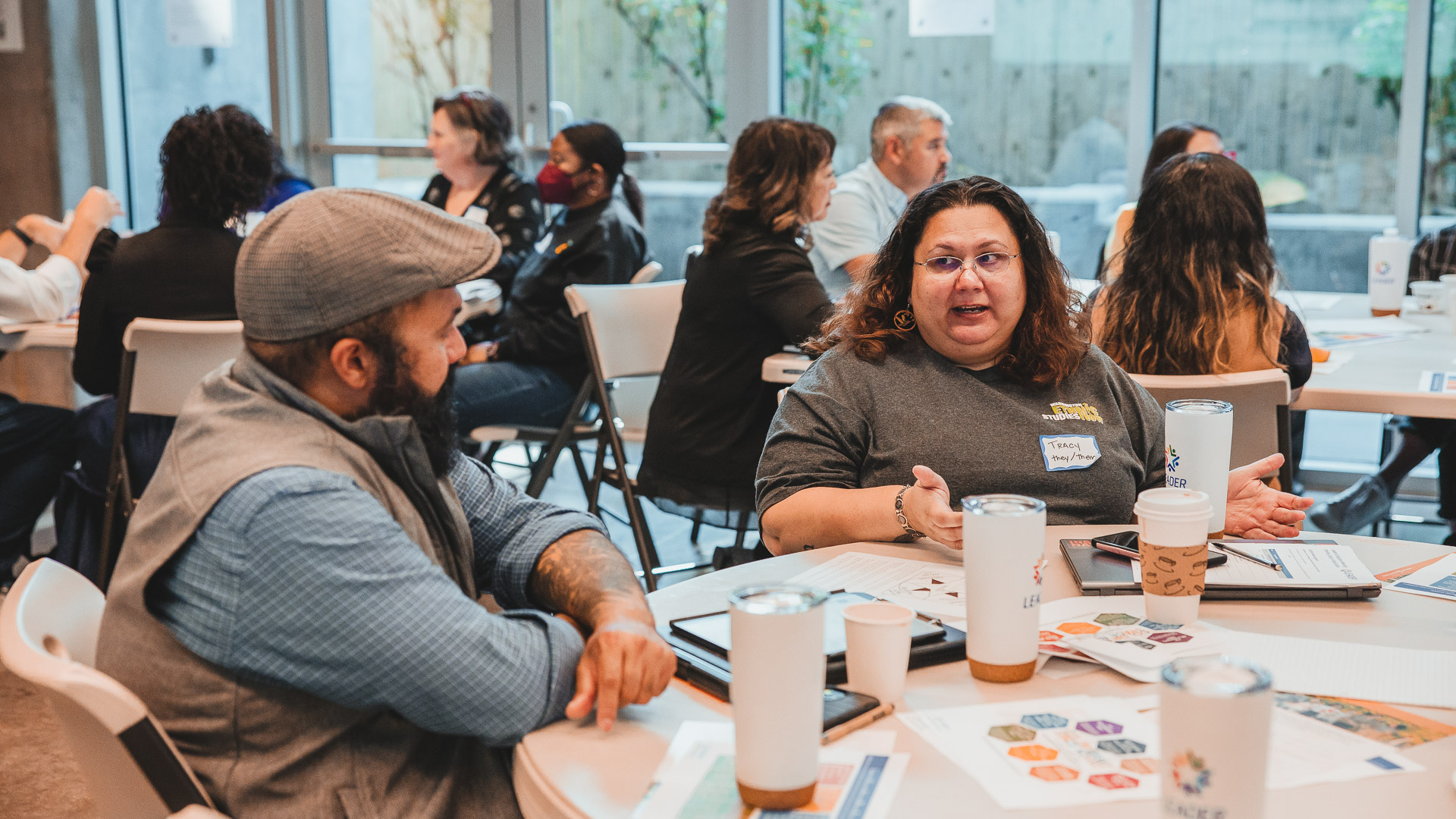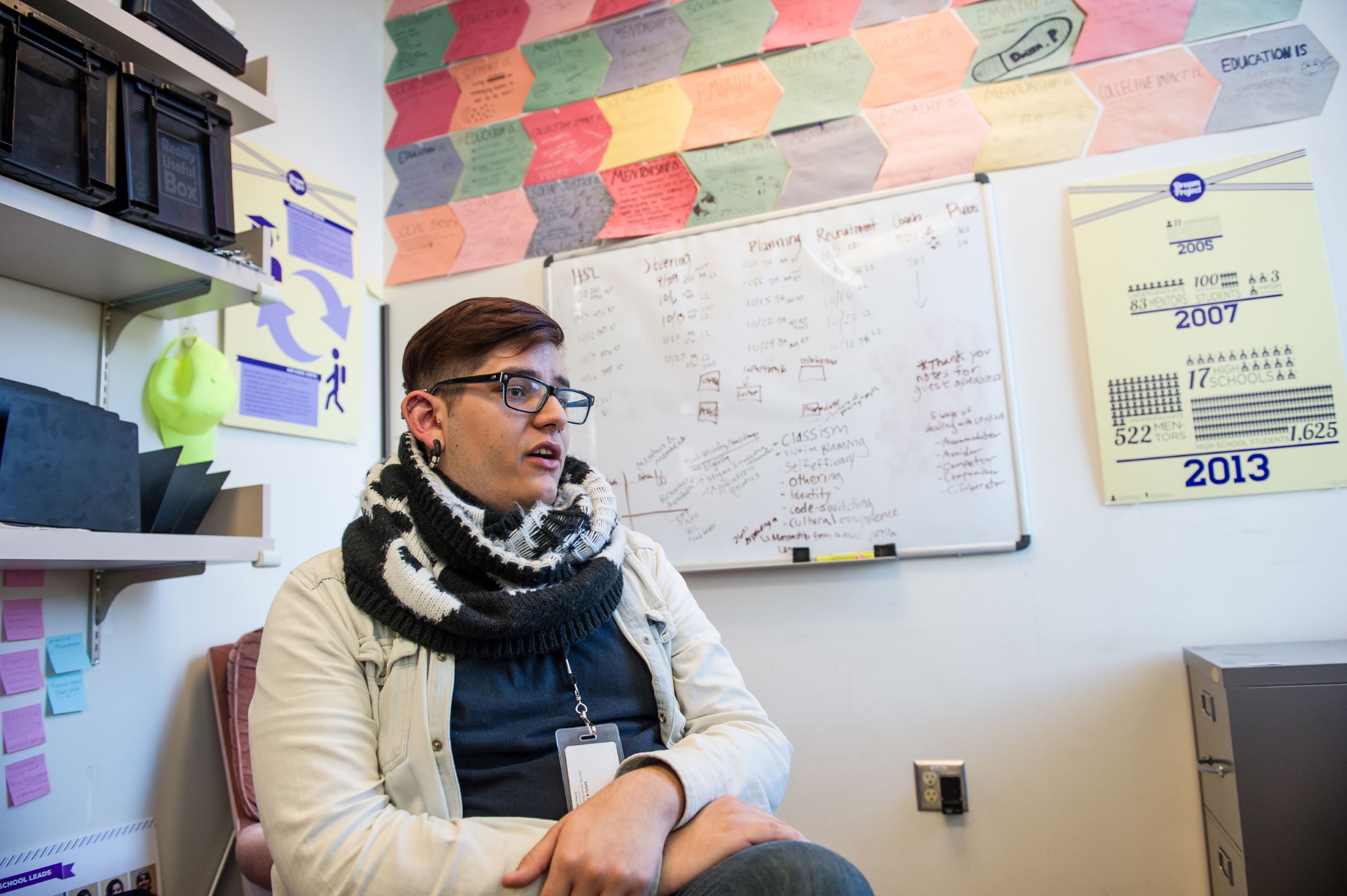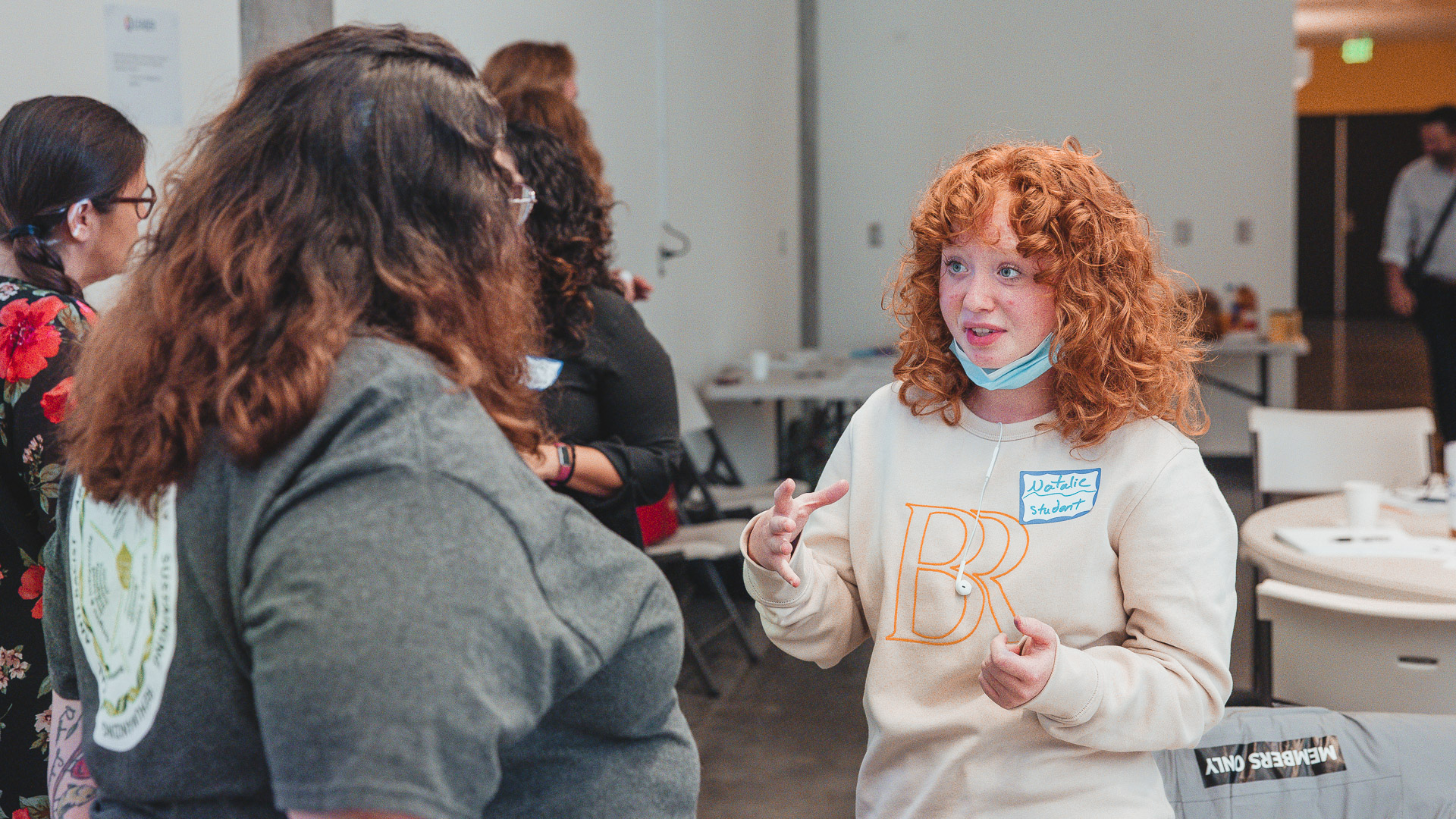
“Many well-intentioned people think ethnic studies is just multi-cultural education — heroes and holidays,” says Tracy Castro-Gill, Executive Director of Washington Ethnic Studies Now (WAESN). “Ethnic studies is anti-racist, abolitionist and student-centered, young people taking ownership and demanding the education they deserve.”
WAESN began as a support network for educators already teaching ethnic studies. Since then, its focus has turned to broader accountability to be sure that ethnic studies is being taught within an anti-racist framework that centers the history and lived experiences of Black, Indigenous and people of color. As part of the LEADER Initiative, the organization is creating an ethnic studies pathway and endorsement for teacher candidates in partnership with the Washington State National Association for the Advancement of Colored People (NAACP) Youth Council and teacher preparation programs at the University of Washington, Western Washington University and Seattle University.
In addition to leading WAESN, Castro-Gill is a Ph.D. candidate focused on the intersections of curriculum and the retention of educators of color. They talk about the importance of curriculum. “I’ve collected all my dissertation data, and one thing that comes up often that people who teach some form of ethnic studies say is, ‘it affirms who I am and my lived experience as an educator of color.’“
This contrasts with educators not feeling valued by the education system. “People also describe feeling dehumanized, checking their identity at the door, and assimilating into white norm teaching,” Castro-Gill says. “Curriculum can bring value to their personhood in the profession where it was once missing.”
Castro-Gill sees this value proposition as an essential part of retention. “The data says we’re doing a great job recruiting educators of color, but teachers of color are leaving at three times the rate of white teachers. We have to change the system, and curriculum is part of the system.”


Creating an ethnic studies pathway and endorsement for teacher candidates involves understanding what is currently being taught and what is missing for students. To find answers, WAESN, Washington State NAACP Youth Council and the university teacher prep programs are partnering with two school districts, Shoreline and North Shore (and potentially Seattle Public Schools), to collect data from educators, teacher candidates and students.
“We’re hearing that people are endorsed in ELA (English Language Arts) and social studies teaching that enslaved Africans were migrant workers,” says Castro-Gill. “We must ensure that teachers teaching ethnic studies aren’t causing more harm.”
This information-gathering step is a critical part of the change process. As a 501C4, WAESN does advocacy work, meeting with legislators and statewide agencies such as the Professional Education Standards Board (PESB). PESB, for example, will decide whether to allow community-based organizations (CBOs) like WAESN to endorse teachers in ethnic studies.
Castro-Gill hopes PESB allows that to happen. They would also like to see CBOs get more funding in the LEADER Initiative and beyond. “Community-based organizations are generally the people trying to disrupt the problem,” they say.

With disruption comes opposition. “I’m a lightning rod for conservative trolls,” Castro-Gill says. So is the topic of ethnic studies. While Castro-Gill wants to see the curriculum centered around student voice and the lived experience of people of color, others feel threatened by proposed changes and are attempting to maintain the status quo.
When thoughtful discourse turns into division, public institutions caught in the middle often distance themselves from controversy and align themselves with power. “I wonder how sustainable that is,” they say. “When will the leaders embrace what folks of color are saying and stop being afraid?”
Still, Castro-Gill finds hope in bravery. “In my short time doing this work, I’ve noticed more funders stepping forward and being brave,” they say. “If funders are serious about being anti-racist, they have to fund unapologetic organizations and not be afraid because we are getting demonized.”
When more people are brave, the work becomes easier. “I feel like we’ve made huge progress,” they say of their input on the Office of Superintendent of Public Instruction (OSPI) Ethnic Studies Framework. “It was hard-fought. We had to protest some of the work because it wasn’t centering folks of color. My hope for recruiting and retaining is that by having an ethnic studies endorsement and pathway, institutions will see how valuable and important those are for folks of color to feel valued and to change systems.”
Find out how you can Get Involved, explore our virtual Events, or sign up below for news updates about the LEADER initiative.
Get the latest — subscribe to our electronic newsletter.
By signing up you agree to receive occasional communications from College Spark Washington. You can unsubscribe at any time. We respect your right to privacy. Please review our Privacy Policy
